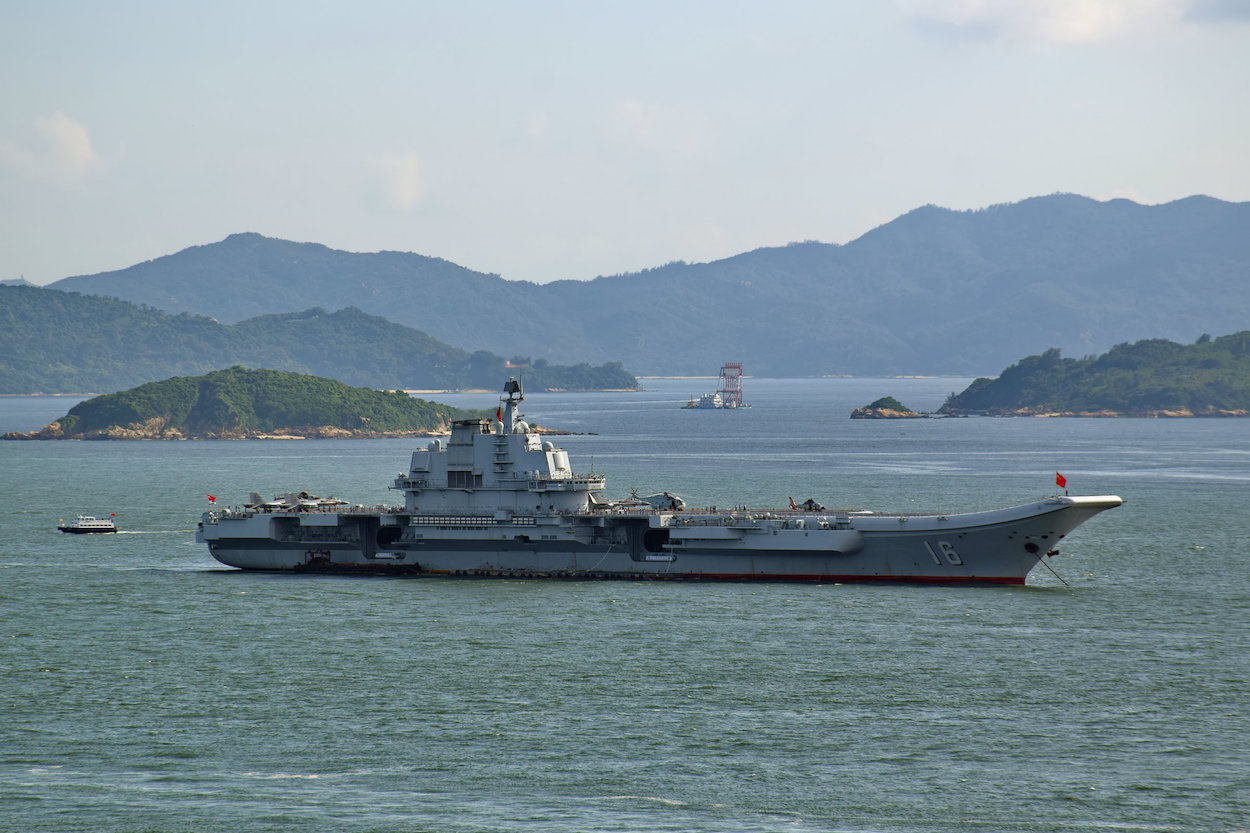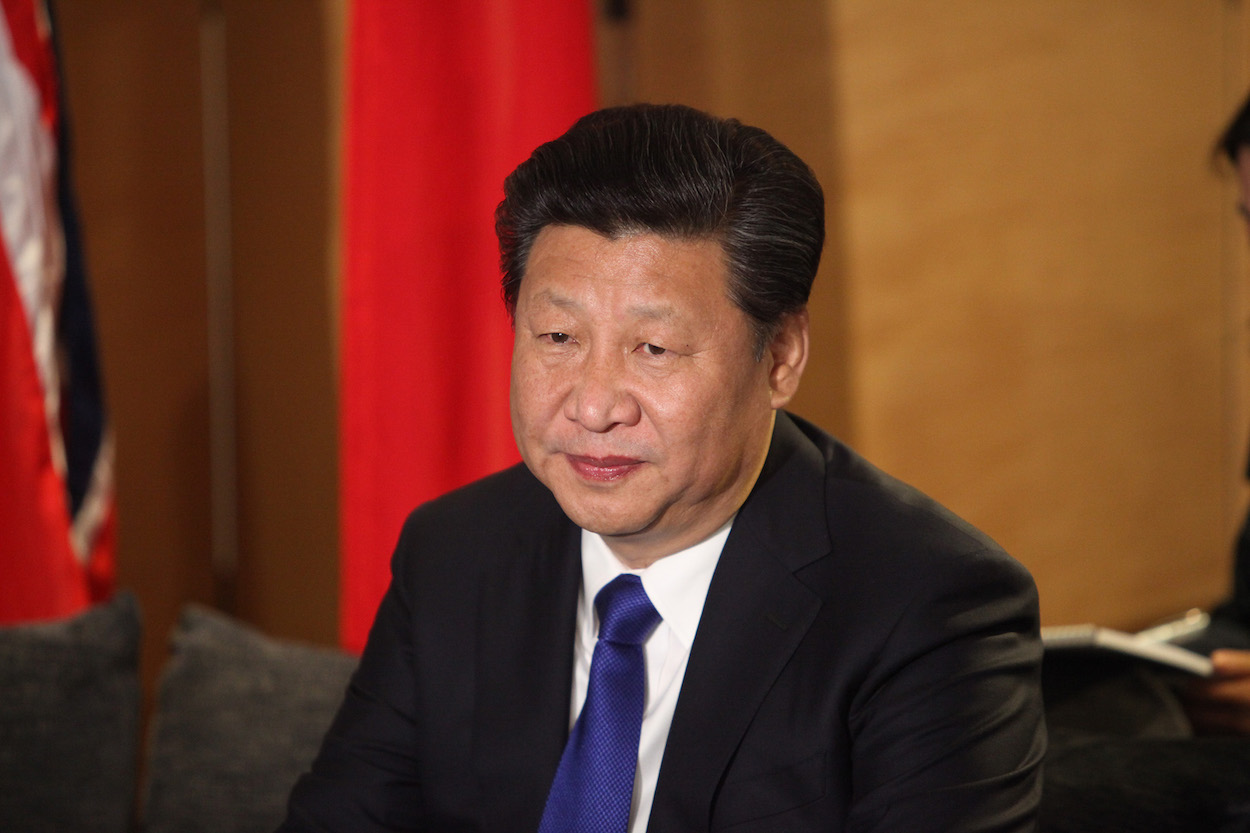by Brian Hioe
語言:
English
Photo Credit: COP Paris/WikiCommons/CC
WITH THE RECENT removal of term limits that a Chinese president can serve, possibly paving the way for Chinese president Xi Jinping to move towards lifetime rule, bluster by China against Taiwan has increased. Xi would warn at the closing of the annual National People’s Congress that “All acts and tricks to separate the country are doomed to fail and will be condemned by the people and punished by history,” stating also that “We are resolved to fight the bloody battle against our enemies.”
To further emphasize the point, China would also sail its sole aircraft carrier, the Liaoning, through the Taiwan Straits. This would not be the first time that China has done so, having previously sailed the Liaoning through the Taiwan Straits in order to intimidate Taiwan before. In line with intimidation efforts using aircraft carriers, it has been reported that China is considering naming its second aircraft carrier the Wei Wen, after a Song dynasty admiral that launched a naval attack on Taiwan.
 The Liaoning. Photo credit: Baycrest/WikiCommons/CC
The Liaoning. Photo credit: Baycrest/WikiCommons/CC
However, Xi’s comments and Chinese shows of force have not elicited any particularly strong response from the Taiwanese public. Oftentimes Chinese invective falls on deaf ears in Taiwan, no matter how grandiose its threats, perhaps because Taiwanese have become all too used to the threat of China. One observes a similar phenomenon, perhaps, with general lack of panic in South Korea regarding threats of nuclear war from North Korea simply because North Korea frequently makes such threats, leading them to be taken less and less seriously by the public at large.
Nevertheless, the threat to Taiwan from China is probably higher now that Xi is moving towards lifetime rule. Namely, China is currently plagued by a number of domestic issues, including a slowing economy, and unrest in Xinjiang and Tibet, necessitating the heavy use of military force to maintain order. Attacking Taiwan would likely compound these issues.
In particular, China has not fought a war in over forty years, and would lose hundreds of thousands of lives in a beach invasion of Taiwan. It is a question as to whether the CCP can maintain the legitimacy crisis that would come with so many loss of lives; one observes how the deaths from the Iraq and Afghanistan Wars, 6,840 as of 2018 according to the Washington Post, led to issues of political credibility for American presidents in a country with a population of 300 million. Despite its significantly higher population, the Chinese government would also suffer a legitimacy crisis following such heavy losses of life, and despite Chinese Internet censorship, it is impossible for it to fully prevent information on casualties from getting out.
It would also be unwise for China to attack Taiwan without being prepared for war with Japan immediately afterwards; one does well to keep in mind that Okinawa is actually geographically closer to Taiwan than to the Japanese mainland. It is a further question as to American intervention, but even assuming that there would be no American intervention, it would be an uphill struggle for China to fight off both Taiwan and Japan in short succession, as well as to occupy Taiwan. Furthermore, war would likely result in the Chinese and Taiwanese economies going into crisis. The Taiwanese economy on its own is large enough that a Taiwanese economic crisis could prove disruptive of the world economy, much less both the Chinese and Taiwanese economies going into crisis at the same time.
 Xi Jinping. Photo credit: Foreign and Commonwealth Office
Xi Jinping. Photo credit: Foreign and Commonwealth Office
However, with increasing concentration of power in the hands of Xi Jinping, irrational moves by China are increasingly possible. Namely, checks on Xi Jinping’s power will become increasingly few, disrupting any checks and balances that the CCP party apparatus might have had on the singular, unilateral decision making process of a single individual. After all, even if the CCP party apparatus may not exactly be a system of checks and balances, the “wisdom of the crowd” serves to restrain irrational decision making by a single, powerful individual.
Likewise, as Xi has not declared lifetime rule but is probably moving towards doing so, Xi may need to engineer crisis in order to justify lifetime rule. Attacking Taiwan, because of that this would throw China into a crisis that Xi might use to justify emergency powers and the extension of his term, might be the precise justification that Xi needs. Similarly, fanning up Chinese nationalism, and attacking Taiwan could actually be a way to distract from China’s stagnating economy in the present, or Xi might actually take the view that a war could be reinvigorating for China’s economy.
Dangerous times may be ahead for Taiwan then. Taiwan may need to be more attentive to China than ever in the near future.

